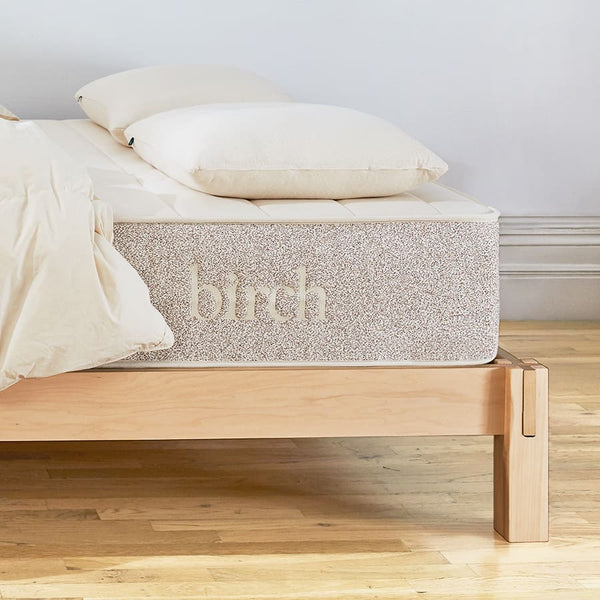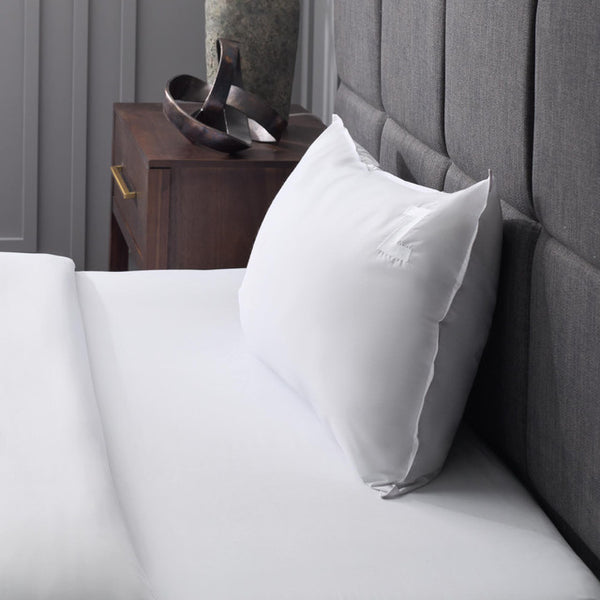
Frequently Asked Questions
1. How does a mattress affect my partner's sleep quality?
2. What is motion transfer and why is it important?
3. What should I consider when choosing a mattress with my partner?
4. What is a split mattress and how can it help couples?
5. How can we maintain our mattress for optimal performance?
When it comes to sharing a bed, one of the most overlooked aspects of a good night's sleep is the mattress. While most people are aware that their mattress affects their own comfort, they may not realize how profoundly it can impact their partner's sleep quality, too. In this blog post, we’ll dive deep into how a mattress can affect your partner's sleep, ensuring that both of you achieve the restful slumber you deserve.
The Importance of a Good Mattress
Your mattress is the foundation for a good night's sleep. It supports your body, promotes proper spinal alignment, and ultimately affects the quality of your rest. However, if you're sleeping on an unsuitable mattress, it could lead to a ripple effect that disturbs not just your sleep, but also your partner's.
Understanding Sleep Quality
Before we delve deeper, let’s talk about what we mean by sleep quality. Sleep quality refers to how well you sleep, including factors like how long it takes to fall asleep, how many times you wake up during the night, and how refreshed you feel upon waking. An optimal mattress should minimize disturbances for both partners and cater to individual sleep preferences.
How Your Mattress Affects Your Partner's Sleep
1. Motion Transfer
One significant way a mattress can impact your partner's sleep is through motion transfer. When one partner moves, it can jostle the other, particularly during the night. If your mattress doesn't absorb movement effectively, your partner may wake up every time you turn over, get out of bed, or shift positions. This can lead to frustration and sleep deprivation for both of you.
2. Firmness and Support
The firmness of a mattress can vary greatly, and preferences can differ significantly from person to person. If one partner prefers a soft mattress while the other needs firm support, the discomfort caused by a poor match may lead to restless nights. Incompatible firmness can lead to poor spinal alignment, resulting in aches and pains that affect sleep quality.
3. Temperature Regulation
Your mattress can also influence body temperature, which is crucial for a good night's sleep. Some materials retain heat more than others, causing one partner to feel warm and sweaty while the other remains cool. If one of you is perpetually too warm, it can disrupt the other's ability to fall and stay asleep. A mattress that allows for airflow and temperature regulation can help mitigate these issues.
4. Allergens and Sensitivities
If one partner suffers from allergies, the type and condition of the mattress can play a pivotal role. Dust mites, mold, and other allergens can accumulate in mattresses, which may aggravate conditions like asthma or hay fever. If your partner is sensitive to these allergens, it can lead to discomfort and sleepless nights, making it essential to choose hypoallergenic materials for the mattress.
Choosing the Right Mattress for Both Partners
Finding a mattress that satisfies both you and your partner can often feel like a daunting task. However, with a good strategy and a bit of research, you can find a solution that works for both of your needs.
1. Assess Individual Preferences
Before purchasing a mattress, it's important to assess your individual preferences. This includes discussing factors like firmness level, materials, and any specific health concerns like back pain or allergies. Having a clear idea of each other's preferences can help narrow down choices.
2. Try Before You Buy
If at all possible, try out mattresses together. Many retailers allow you to test out mattresses in-store, providing a unique opportunity to feel the differences between various options. Lying down on a mattress can give you a sense of its comfort and support, allowing both partners to weigh in on the decision.
3. Consider a Split Mattress
If the differences between both partners' preferences are too great to reconcile, a split mattress might be the perfect solution. This option allows you to have two separate mattresses, each tailored to individual preferences, while still sharing the same bed frame. Many modern beds allow you to customize each side to meet different firmness levels, giving both partners the support they need without compromising.
4. Don’t Forget About Maintenance
A mattress can only perform its best with proper care and maintenance. This includes regular cleaning, flipping, or rotating the mattress as recommended by the manufacturer. A well-maintained mattress will not only improve your sleep quality but also prolong the life of the mattress itself, which means you both get to enjoy better sleep over time.
Additional Factors to Consider
1. Bed Frame Compatibility
The bed frame you choose can also affect how the mattress performs. A sturdy, supportive frame prevents sagging and ensures that your mattress maintains its shape and function. Make sure both partners agree on the style and support of the bed frame for optimal sleep quality.
2. Bed Size Matters
A mattress that’s too small can lead to discomfort, regardless of its materials or design. Couples should consider a larger bed size, especially if they move around a lot in their sleep. This additional space can greatly improve the overall sleep experience for both partners.
3. Periodic Assessments
Over time, sleep needs may change for both partners, whether it's due to age, lifestyle, or health changes. It's a good idea to periodically assess whether your current mattress is still meeting your sleep needs. This ensures both partners enjoy restful nights year after year.
Upgrade to Better Sleep Together
Transforming your sleep environment starts with choosing a mattress that not only caters to individual preferences but also enhances the overall sleep experience for both you and your partner. A mattress impacts not only comfort levels but also your partner's sleep, mood, and well-being. By considering factors like motion transfer, temperature regulation, and proper support, you can ensure that both partners wake up refreshed and ready to take on the day.
Don’t underestimate the power of a good mattress to create a sanctuary for restful nights. Take the time to explore options, communicate with your partner, and perhaps even share the journey of mattress shopping together. Together, you can find the perfect solution for a peaceful and rejuvenating sleep for both of you!








